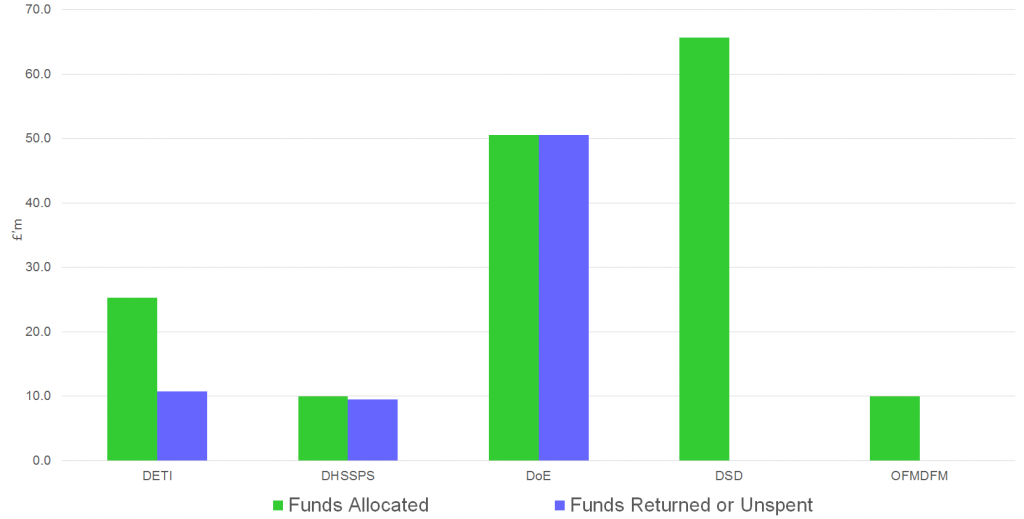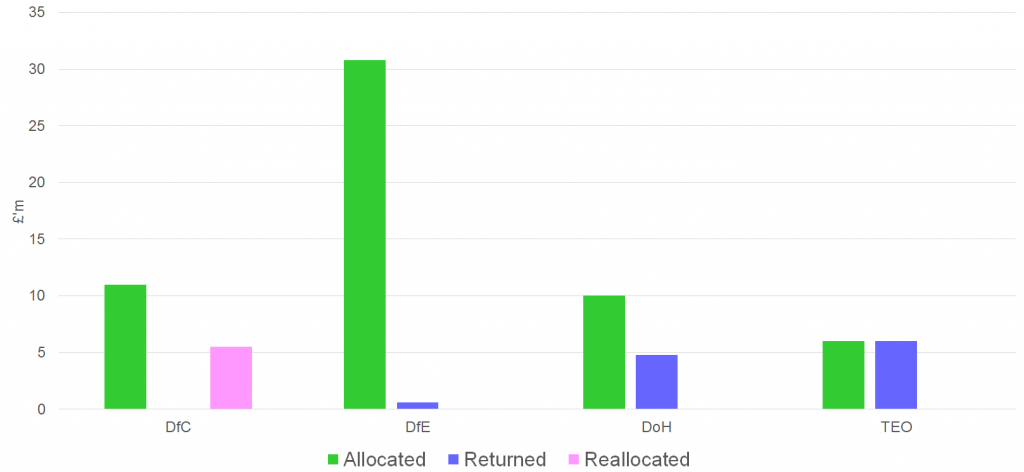Financial Transactions Capital (FTC) is funding allocated to the Executive by the United Kingdom (UK) Government. The Executive has discretion over FTC allocation to projects. However, FTC can be deployed only as a loan to or equity investment in a capital project delivered by a private sector entity (‘private sector’ is defined here using the Office of National Statistics classification and includes charities and universities).
The private sector must use FTC to invest in related infrastructure. FTC schemes are required to comply with all the following conditions:
- The capital project must deliver policy objectives and be suitable for delivery by the private sector.
- There is a private sector entity for the department to invest in.
- The sponsor body must have the legislative authority to enter into this type of transaction.
Incentives for using FTC
Additionally, the department deploying the investment may keep half the net benefit. For example, where the department recoups 100% of the loan or equity investment and HM Treasury’s repayment rate is 60%, then the department repays 80% of the FTC to the Department of Finance (DoF). The department retains 20%, and the remaining 20% is retained by the ‘centre’, to manage the overall position. For example:
Only a percentage of FTC has to be repaid to Her Majesty’s (HM) Treasury. However, the percentage differs depending on the tranche, with the 2012-13 tranche repayable at 60% and the 2013-14 tranche repayable at 76%.
FTC differs from the normal Capital ‘Departmental Expenditure Limit’ (DEL) funding received by departments through the budget. Capital DEL is used directly by departments and related public bodies to purchase capital assets and deliver public infrastructure, which are then wholly public sector owned. FTC is seen as an additional type of capital funding, to help boost investment. It also is to stimulate private sector investment in infrastructure projects that benefit the region, over and above the level of investment made by the Executive from its conventional Capital DEL budget.
- Department loans £1,000 to a project
- Project repays £1,000 to the department
- Department repays DoF £800 and retains £200
- DoF repays HM Treasury £600 and retains £200
- Additionally, any loan interest may be retained by the department deploying the investment.
Compliance with EU Rules
Projects in receipt of FTC must comply with European Union (EU) rules on State Aid. In general State Aid rules require public authorities not to provide state resources on a selective basis to organisations if it could distort EU competition and trade. Therefore, where a private sector entity is involved in a market activity, the return to the department must be on a commercial basis. This means that a loan to any company operating in a competitive market must usually involve the charging of a commercial market interest rate.
There are, however, some exemptions to this rule. For example, the ‘de-minimis’ rule states that trade between Member States is not deemed to be affected where the investment is small – below €200,000 to a single undertaking in any three-year period.
FTC Spent/Allocated
| £’000 | 2012-13 | 2013-14 | 2014-15 | 2015-16 | 2016-17 | 2017-18 | 2018-19 | 2019-20 | 2020-21 |
| FTC Spent | 11,839 | 40,900 | 68,235 | ||||||
| FTC Allocated | 11,839 | 46,755 | 68,625 | 129,298 | 113,600 | 100,700 | 76,400 | 66,100 | 54,000 |
Successive Finance Ministers have experienced difficulties in utilising the FTC money available to them. Such challenges are reflected in Figure 1 by the fact that three of the five departments allocated FTC monies in 2015-16 returned significant amounts of that money.

A similar issue has arisen in 2016-17, as shown in Figure 2, where significant amounts of FTC funding have been returned at June monitoring.

Northern Ireland (NI) Investment Fund
To address the FTC utilisation challenges, the 2015-16 Executive Budget announced the creation of a NI Investment Fund (the Fund) primed with FTC. It was hoped that the Fund would be operational during 2015-16. This proved optimistic; and recent estimates suggest it will not be operational until autumn 2016.
The Fund will provide loan, equity or ‘mezzanine’ finance to viable local private sector projects that cannot or are not in a position to obtain commercial funding. It will concentrate on the following sectors:
- Urban regeneration
- Energy and energy efficiency
- Telecoms
- Social housing
Appointed as a technical adviser, the European Investment Bank’s (EIB) role is to enable implementation of European best practice into the Fund’s design. The recent EU Referendum result may impact on the role that the EIB will be able to play in respect of the Fund. However, Department of Finance officials have stated that EIB business in NI will continue as usual until exit negotiations have been finalised.
In the meantime, it should be noted that unused FTC must be surrendered to HM Treasury under its ‘Budget Exchange Scheme’, which requires surrender of Capital DEL underspends over 1.5%. The current climate of tighter budgets therefore should serve to focus minds to ensure effective FTC use; if not, this funding will be lost to NI.

